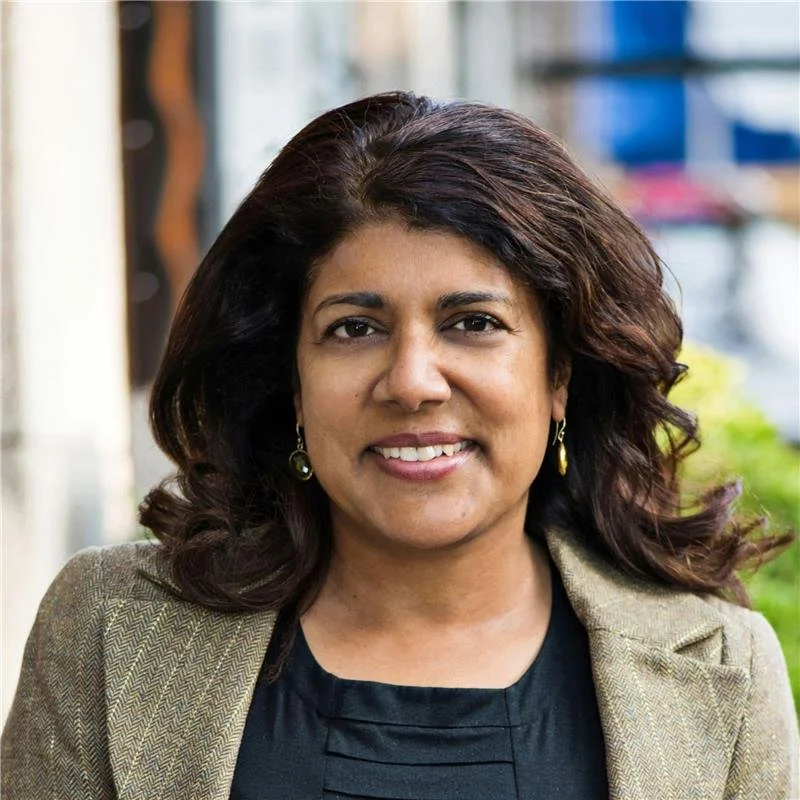Designing capability: institutions and the future of emerging compute
Emerging compute is redefining scientific sovereignty, and societies now face a pivotal moment to embed equity and public purpose into AI’s foundations, says Vilas Dhar, President of the Patrick J. McGovern Foundation.
Plastic pollution in a warming world: a multi-level approach to addressing twin crises
Tackling plastic pollution through coordinated action across global, national, and local levels is both an environmental imperative and a climate solution, essential to safeguarding ocean and planetary health, argues Anja Brandon, Director of Plastic Policy for the Ocean Conservancy.
Artificial intelligence and the future of consciousness science: ethical and policy reflections
The convergence of AI and consciousness science demands anticipatory, globally inclusive governance to promote ethical progress and address issues of neuroprivacy, bias, and equity, say Marcello Ienca, Joseph Fins, and Debra Mathews of the International Neuroethics Society.
Precision cardiovascular medicine: a time for global health leadership
Cardiovascular health for all demands national action plans that integrate precision approaches based on globally representative research—enabled by leadership committed to equitable access and context-relevant implementation, says Prof Amam Mbakwem, World Heart Federation, Nigeria.
Regulating right: hybrid alternative proteins and the role of regulatory sandboxes
Hybrid proteins face complex regulatory hurdles, and regulatory sandboxes could help balance safety, innovation, and consumer acceptance on their path to market, say Dr Alessandro Monaco and Prof Kai Purnhagen (University of Bayreuth, Germany)
Hybrid alternative proteins: policy frontiers for sustainable food systems
Scaling hybrid proteins requires supportive policy and financing frameworks to reduce the hidden costs of the global food system while strengthening sustainability, resilience, and food security, says Dr Helena Wright (FAIRR Initiative, London, UK).
Solar geoengineering: growing scientific and political support for a non-use agreement
A growing number of Global South governments and academics are now calling for an international non-use agreement on solar geoengineering, says Prof Aarti Gupta of Wageningen University, the Netherlands.
A critical lens on geoengineering in Inuit Homelands
The rights, leadership, and knowledge of Inuit Peoples must be foundational to geoengineering and other climate policies affecting their Homelands, ensuring meaningful participation and avoiding unfair burdens, emphasizes Sophie Crump, Inuit Circumpolar Council, Greenland.
Earth BioGenome Project prioritization: maximizing value to society
The Earth BioGenome Project is scientifically viable and globally coordinated—but success now hinges on strategic policy leadership, sustained funding, and unrestricted data access, asserts Prof. Richard A. Gibbs, Baylor College of Medicine, USA.
Building a microbiome-informed approach to agri-food systems and childhood nutrition policies
A holistic, microbiome-informed approach to agrifood systems and childhood nutrition policies—rooted in global collaboration, evidence-building, and equitable innovation—can drive sustainable solutions to undernutrition and improve children’s health worldwide.
Reclaiming lost traits: research and policy pathways for climate-resilient agriculture
Dr. Abdelbagi M. Ismail explores how scientific innovations, strategic partnerships, and policy reforms, led by organizations like the International Rice Research Institute, are crucial for achieving sustainable food security in Africa and globally amid mounting environmental and population pressures.
Advancing equity through innovation in rare diseases
Disruptive approaches such as NANOSPRESSO could help provide equitable access to advanced therapies for patients with rare diseases worldwide, as called for by the recent World Health Assembly Resolution on Rare Diseases, highlight Alexandra Heumber Perry and Debra Bellon.
Simulating aging to increase human healthspan: how in silico life sciences could tackle real societal challenges
Realistic opportunities to extend the human healthspan and ease the societal burden of aging-related diseases are emerging, but require long-term funding for infrastructures that support large-scale data collection and systems-based aging research, advocate Prof. Renaud Jolivet and colleagues.
Investing in sepsis science for future pandemic preparedness
Global health policies must prioritize investments in sepsis R&D as a cornerstone of pandemic preparedness and response, urge Dr Mariam Jashi, Global Sepsis Alliance, Georgia, and Prof Niranjan Kissoon, University of British Columbia, Canada.
Beyond COVID-19: science, policy, and society joining forces
Collaboration between science, medicine, policymakers, and societies is essential for tackling major health emergencies and pandemics, highlights Brigitte Autran of Sorbonne Université and President of the French Committee for Monitoring and Anticipating Health Risks (COVARS).





















